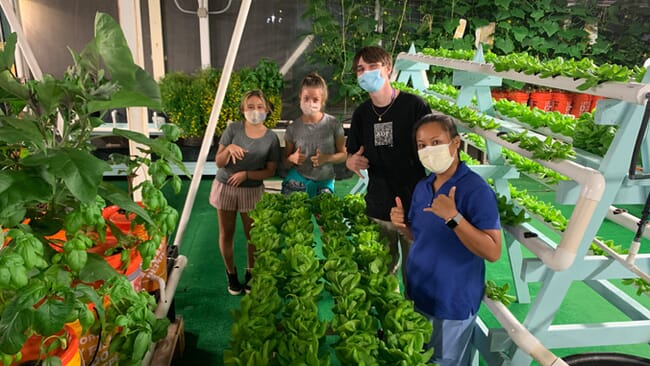
The NIFA grant is one of eight totalling $3.9 million for rural economic development projects and is part of the agency’s Agriculture and Food Research Initiative.
“This project will address key community training needs relevant for local agriculture,” said Chancellor Lui Hokoana, one of the principal investigators. “The potential impacts of the project include advancing knowledge in the application of precision agriculture technologies in aquaponics production systems and developing sustainable food systems in Hawai'i for food security and community resiliency.”
The Adapting Precision Farming Technologies for Sustainable Aquaponics Systems in Hawai'i project will be conducted at the campus’ WaiPono Farm aquaponics and hydroponics greenhouse. The project focuses on the priority area of agriculture systems and technology by expanding workforce training using precision agriculture technologies in aquaponics systems.
This project proposes to create a new programme to enhance the college’s agricultural workforce training with a goal of training participants aged 16+ in Hawai’i. It includes a 16-week apprenticeship-based workforce training programme involving 80 hours of paid work-based learning at the WaiPono Farm site, culminating in the award of the Sustainable Aquaponics System Certificate of Professional Development and Aquaponics Apprenticeship Certificate of Professional Development.
The project also aims to assess the effectiveness of integrating locally sourced fish feed and nutritious native plants through student-led projects that integrate remote monitoring devices and data analysis.
Hokoana concluded, “In the wake of the global pandemic and its negative impact on the workforce in Hawai'i, learning precision farming skills and technology in the applied environment of aquaponics systems holds the potential to support effective, efficient and productive agricultural systems for new and established farmers.”




